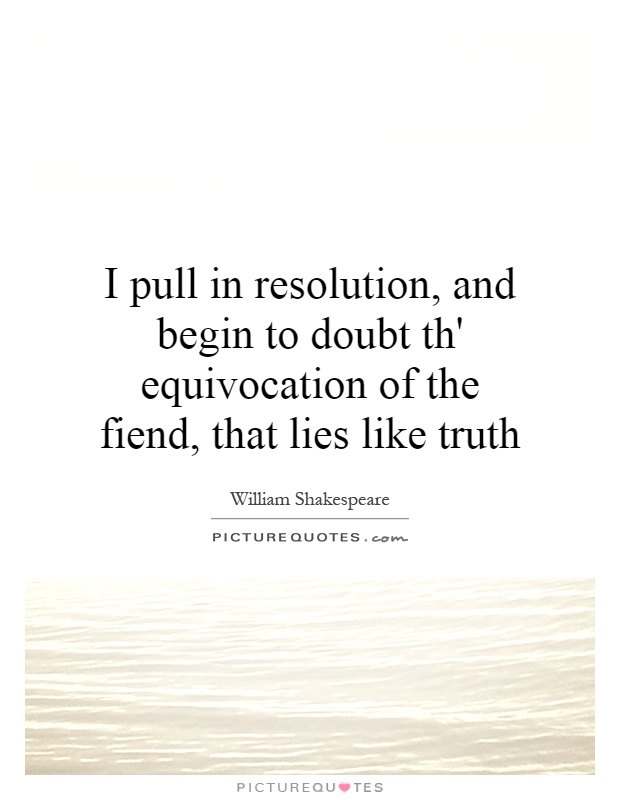I pull in resolution, and begin to doubt th' equivocation of the fiend, that lies like truth

I pull in resolution, and begin to doubt th' equivocation of the fiend, that lies like truth
The line "I pull in resolution, and begin to doubt th' equivocation of the fiend, that lies like truth" is spoken by Macbeth in Act 5, Scene 5 of William Shakespeare's play Macbeth. In this scene, Macbeth is reflecting on the witches' prophecies and the deception that has led him to his downfall.The word "equivocation" in this context refers to the witches' use of ambiguous language to deceive Macbeth. The fiend that Macbeth refers to is the devil, who is often associated with deception and trickery. Macbeth is realizing that the prophecies that he believed to be true were actually lies designed to manipulate him into committing heinous acts.
The line reflects Macbeth's internal struggle as he grapples with the consequences of his actions. He is torn between his desire for power and his guilt over the bloodshed that has occurred as a result of his ambition. The word "resolution" suggests that Macbeth is trying to gather his courage and determination to face the truth of his situation, but he is beginning to doubt the validity of the promises that were made to him.
Shakespeare uses this line to explore the theme of deception and the consequences of believing in false promises. Macbeth's realization that he has been misled by the witches forces him to confront the reality of his actions and the choices he has made. The line also highlights the idea that appearances can be deceiving, and that the truth is not always what it seems.
Overall, this line captures the complexity of Macbeth's character and the moral dilemmas that he faces throughout the play. It serves as a reminder of the dangers of succumbing to temptation and the importance of questioning the motives of those who seek to manipulate us. Shakespeare's exploration of these themes continues to resonate with audiences today, making Macbeth a timeless and enduring work of literature.












 Friendship Quotes
Friendship Quotes Love Quotes
Love Quotes Life Quotes
Life Quotes Funny Quotes
Funny Quotes Motivational Quotes
Motivational Quotes Inspirational Quotes
Inspirational Quotes